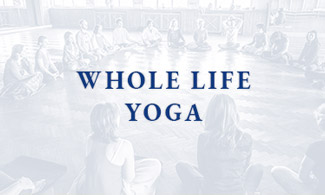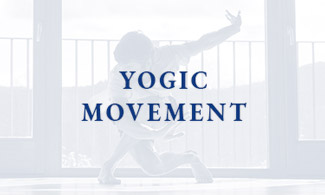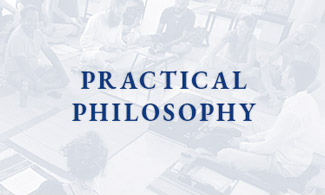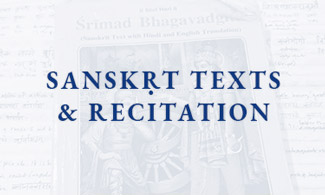
Bob Marley and the Bhagavad Gītā
Q. So James, could you tell us a bit about this Bob Marley and the Bhagavad Gītā weekend? I’m intrigued and was wondering what it’s all about.
A: Sure, when I first started getting into yoga and discovering how practical its teachings were, I was also struck by how much ‘yoga’ there was in so many poems and songs that were already dear to me, and this included many songs by Bob Marley and the Wailers.
Q. Could you give an example?
A. Sure, with Bob’s music the yogic messages keep on coming throughout the course of his albums, and they are there, very strong, right from the beginning. The great, opening song of the Wailers’ first album ‘Burnin’, is ‘Get Up Stand Up’. And ‘Get Up, Stand Up’ is one of the very first instructions in the Bhagavad Gītā. In the Gītā, the student, Arjuna, is torn. He’s on the floor, doesn’t know what to do. The rules he has previously lived by are no longer robust or inclusive enough to guide him through this challenging situation he now finds himself in. And what does his teacher, Kṛṣṇa, tell him? Kṛṣṇa first asks Arjuna how he has let this meagre, faint-heartedness come over him at this, the crucial moment, then tells him that this pathetic attitude does not suit him, is not worthy of him and will do him no good now or hereafter, so he should rise up like the great hero he really is. In other words, Kṛṣṇa urges Arjuna to Get up, stand up! Stand up for your rights, Arjuna, like the great hero you really are!
As Kṛṣṇa’s teaching continues, he urges Arjuna to claim sovereignty for his own experience, in other words, to get up and stand up, and claim responsibility for his own life. In a course I took with one of my Indian teachers, Bharath Raj Naga Kumar, he reminded us: ‘remember, your problem is always smaller than you are! It exists in your awareness, so it’s smaller than you.’ Everything is experienced in the realm of our awareness. As soon as we notice, we are empowered to shift the way we are engaging with reality and perhaps shift the quality of our experience. In yoga, a challenge or difficulty is thus recast as an opportunity in disguise.
Yoga is about coming home to the fullness we really are, coming out of partiality and re-membering our innate wholeness. As Bob says, in ‘Coming in from the Cold’ at the start of the magnificent Uprising album: ‘In this life, in this life, in this life, in this, oh sweet life, we’re coming in from the cold, coming in from the cold.’ And this reminds us of this yogic message that every experience in life is an opportunity to learn more about who we are, to come out of the ‘cold’ of fragmentation, into the warm light of centred, cohesive, integrated awareness.
One beautiful and striking feature of yogic texts of instruction such as the Bhagavad Gītā and Yoga Sūtra is the lack and total absence of negative instruction. In Patañjali’s Yoga Sūtra which encodes in distilled sūtra form essential practical teachings of Yoga, there are no negative instructions. Patañjali does not deal in ‘don’ts’. Yoga recognises that if we want to move in constructive, new directions, we need to channel our energy there, rather than dwelling on, dissecting and analyzing what is wrong. Yoga instead encourages us to take great care with the quality of our thoughs, words and actions, so we can actively invite the type of cohesion and experience we really want. And this too is reiterated by Bob Marley, for example in ‘Positive Vibration’ which opens the Rastaman Vibration album:
‘If you get down and you quarrel every day, you’re saying prayers to the devils I say! / Why not help one another on the way, make it much easier… … make way for the positive day, are you pickin’ up now?’
‘Are you pickin’ up now?’ In other words, what waves are you choosing to catch in your day to day? What vibes are you allowing yourself to cultivate with the quality of your thoughts, words and actions? So here again, we get a strong yogic message as Bob’s lyrics remind us that the quality of our experience is our responsibility, and always involves a significant element of choice. And we can choose to cultivate the ‘positive day’, the ‘positive vibration’ that is conducive to learning and evolution.
And talking of evolution, as Bob reminds us in Revolution, at the closing climax of the majestic Natty Dread album: ‘It takes a revolution, to make a solution.’ One of the ways I understand this lyric is that when we are coming to terms with the extent of our own self-sabotage, when we are working with our own fissures and fragmentary patterns, and as we move in the direction of greater cohesion and integration, it takes a whole go-round of the cycle of our experience for the new ways we are inviting to really gain traction, because the old patterns have inertia. As we make the heartful, sincere effort to shift our patterns in new directions of greater cohesion, this will not be an overnight, one weekend, or even one year affair. Practice, as it is defined in the Yoga Sūtra, is the long-term, continued, whole-hearted effort to foster steadiness, attended to with dedication and commitment, then it becomes robust and well-rooted. In other words, when we persist, diligently, through the natural cycles of our experience, we can come to greater self-mastery and integration, but this requires attentive presence through the whole cycle of our experience.
And this careful, attentive, wholehearted presence is what yoga practice is all about. These days, we hear much more frequently than only a few years ago about consciousness, but we don’t hear quite so much about conscience, and this is perhaps why the spread of yoga has yet to have the revolutionary, positive evolutionary impact that is its innate capacity. But Bob Marley and the Wailers knew that spiritual practice is really all about how we live. As is said in Rebel Music (3 O’ Clock Road Block) on the Natty Dread album: ‘check my life, if I am in doubt. But coming back to the Wailers’ Burnin’ album and Pass It On:
‘What your hands do, it is your own eyes that have seen, so won’t you judge your actions to make sure the results are clean?/ It’s your own conscience that is going to remind you that it’s your heart and nobody else’s that is going to judge…’
What a beautiful summary of the key teaching in yoga that it is up to us to claim sovereignty for our actions and experiences and work honestly with the miraculous gifts of our incarnations as human beings blessed with self-reflexive awareness and the gifts of conscience!
So, in summary:
Get Up, Stand Up!
Your life, your experience, your action, is your responsibility, yours and nobody else’s, so rise up, you have great power, great capacity and this life is a great opportunity, so as Bob says: Wake up and Live NOW, wake up and live!
Yoga is about working with the gifts of conscience, working skilfully with the reality of the human condition. I love the inclusivity of the yoga tradition, how the teachings are offered in so many different, yet wonderfully complementary forms: the ultra-distilled Yoga Sūtra, with the sūtra-s basically like mnemonics: concise keys to vast bodies of practical teachings, practical teachings that are further illustrated by the dramatic dialogue of the Bhagavad Gītā, the flavourful, symbolic literature of the Purāṇa-s and epics. And I would add to this the spiritual teachings that have come through mystics, visionaries and artists who have been conduits for spirit on every continent. And Bob Marley, in my opinion, is one of these. Let us not impoverish ourselves by turning away from the wisdom that is all around. Yoga is an all-inclusive practice and it recognises that the way to One Love, One Heart, to true at-one-ment embraces the whole of life and allows all we experience to be a Redemption Song, all we express to be a song of freedom!
See James speaking about Bob Marley and the Bhagavad Gītā below:
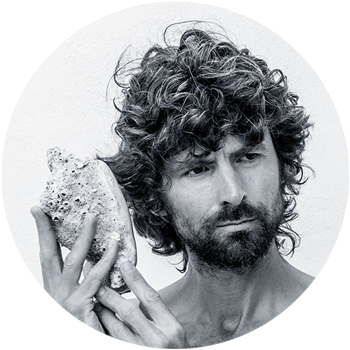
James Boag | Whole Life Yoga
The yoga of the whole human being. Practical philosophy, storytelling, movement, inquiry, looking in ways that reach beyond our habitual ways of looking.
Listen to James’ unique whole life yoga perspectives on the WHOLE LIFE YOGA podcast.

